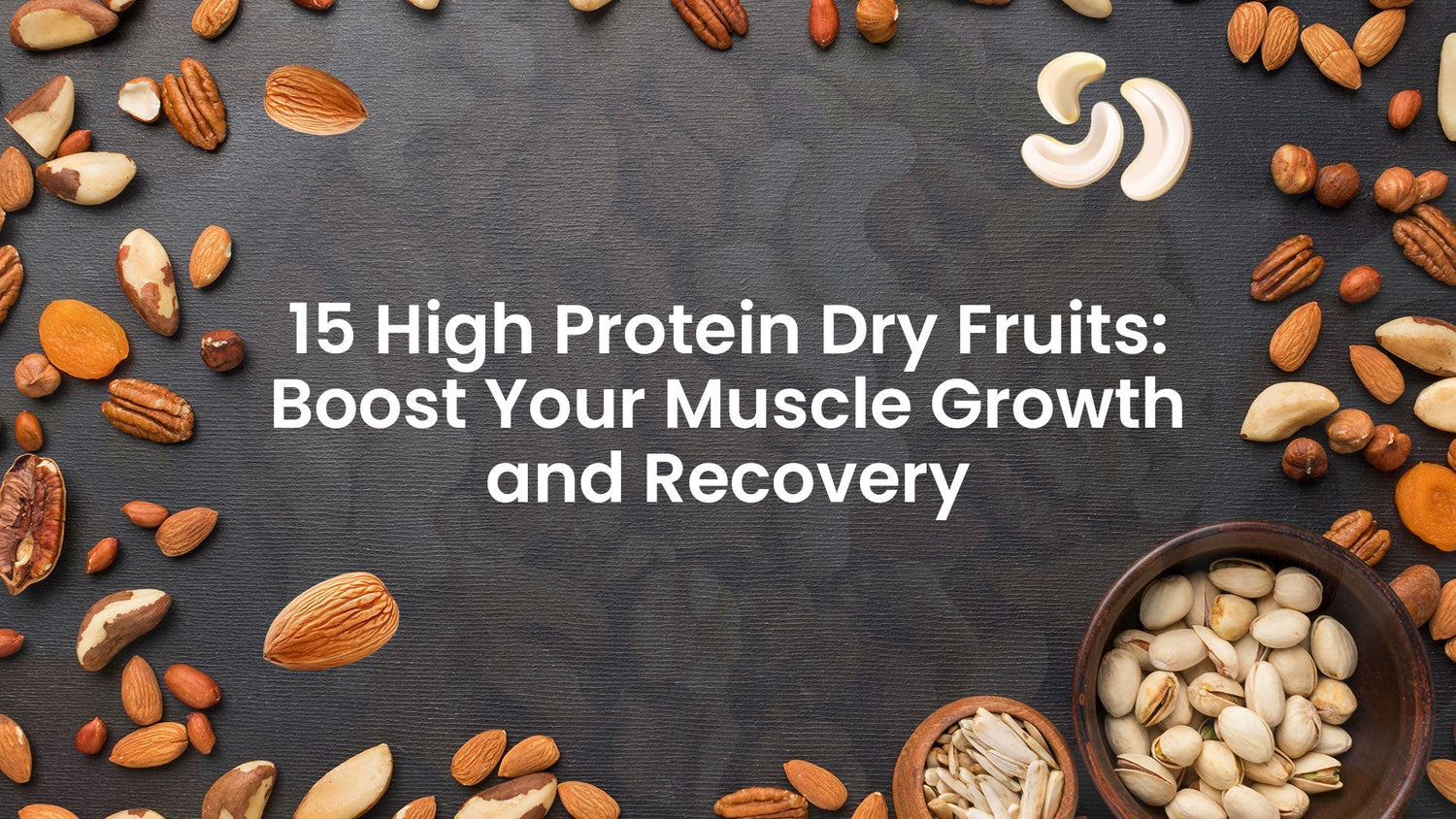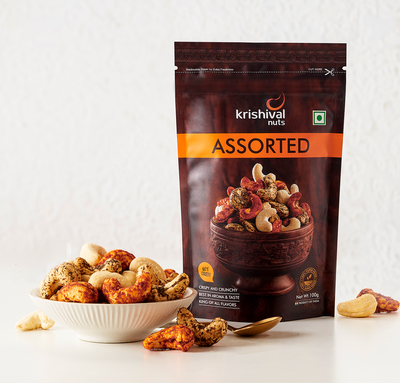
TABLE OF CONTENTS
- Introduction
- Almonds
- Pistachios
- Walnuts
- Cashews
- Pecans
- Macadamia Nuts
- Brazil Nuts
- Pine Nuts
- Pumpkin Seeds
- Sunflower Seeds
- Chia Seeds
- Hemp Seeds
- Flaxseeds
- Quinoa
- Dried Mulberries
- Nutritional Comparison Table
- Conclusion
Introduction
In the pursuit of optimal health and fitness, protein stands out as a vital nutrient essential for muscle growth, repair, and overall body function. While many people often associate protein with animal products, there are numerous plant-based sources that can help meet your protein needs. Among these, dry fruits are a convenient and nutritious option that not only provide protein but also come packed with essential vitamins, minerals, and antioxidants. In this article, we will explore 15 high protein dry fruits that can enhance your diet, support muscle recovery, and contribute to overall health.
1. Almonds
Almonds are one of the most popular nuts and a fantastic source of protein. With approximately 21 grams of protein per 100 grams, they are a top choice for those looking to increase their protein intake.
Start your healthy journey with Krishival Almonds the perfect protein-packed snack to boost your energy
Shop Related Products
Nutritional Benefits:
Almonds are not just about protein; they are also rich in healthy fats, particularly monounsaturated fats, which are beneficial for heart health. They provide about 12 grams of dietary fiber per 100 grams, aiding in digestion and promoting a feeling of fullness. Additionally, almonds are high in vitamin E, magnesium, and calcium, making them a well-rounded snack option.
How to Use:
You can snack on raw or roasted almonds for a quick energy boost. They also make a great addition to salads, oatmeal, or smoothies, enhancing both flavor and nutrition.
2. Pistachios
Pistachios are another excellent source of protein, offering about 20 grams of protein per 100 grams. These nuts are not only delicious but also packed with nutrients.
Nutritional Benefits:
Pistachios are rich in antioxidants, which help combat oxidative stress in the body. They provide about 10 grams of fiber per 100 grams, promoting digestive health. Furthermore, they are a good source of vitamin B6, potassium, and healthy fats, making them a heart-healthy choice.
How to Use:
Enjoy pistachios as a standalone snack or sprinkle them over salads and yogurt for added crunch and flavor.
3. Walnuts
Walnuts are a powerhouse of nutrients, providing approximately 15 grams of protein per 100 grams. They are particularly known for their high omega-3 fatty acid content, which is beneficial for heart health.
Nutritional Benefits:
In addition to protein, walnuts are rich in antioxidants that protect against cell damage. They contain about 7 grams of fiber per 100 grams, contributing to digestive health. Walnuts are also a source of several vitamins and minerals, including vitamin E and magnesium.
How to Use:
Chop walnuts and add them to baked goods, salads, or oatmeal for a nutritious boost.
4. Cashews
Cashews are creamy and rich in flavor, providing about 18 grams of protein per 100 grams. They are versatile and can be used in various dishes.
Need a nutritious snack? Krishival Cashews provide a creamy and protein-rich option to fuel your day
Nutritional Benefits:
Cashews are high in magnesium, which is important for muscle function and energy production. They also contain healthy fats and provide about 7 grams of fiber per 100 grams. Additionally, cashews are a good source of copper, which plays a role in iron metabolism.
How to Use:
Incorporate cashews into stir-fries, curries, or as a base for creamy sauces. They also make a great snack on their own.
5. Pecans
Pecans are not only delicious but also offer about 9 grams of protein per 100 grams. They have a rich, buttery flavor that enhances many dishes.
Nutritional Benefits:
Pecans are high in antioxidants, which help protect against oxidative stress. They provide about 10 grams of fiber per 100 grams, promoting digestive health. Additionally, pecans are rich in healthy fats, making them a heart-healthy option.
How to Use:
Use pecans in desserts, salads, or as a topping for yogurt to add a delightful crunch.
6. Macadamia Nuts
Macadamia nuts are known for their rich flavor and creamy texture, providing about 8 grams of protein per 100 grams.
Nutritional Benefits:
These nuts are high in monounsaturated fats, which are beneficial for heart health. Macadamia nuts also provide about 9 grams of fiber per 100 grams and are rich in thiamin and manganese, which support energy metabolism.
How to Use:
Enjoy macadamia nuts as a snack or incorporate them into baked goods for added richness.
7. Brazil Nuts
Brazil nuts are a powerhouse of nutrients, offering about 14 grams of protein per 100 grams. They are particularly high in selenium, an essential mineral.
Nutritional Benefits:
In addition to protein, Brazil nuts are rich in healthy fats and provide about 7 grams of fiber per 100 grams. They are also an excellent source of selenium, which supports thyroid function and immune health.
How to Use:
Snack on Brazil nuts raw or chop them into trail mixes for added nutrition.
8. Pine Nuts
Pine nuts are small but mighty, providing about 14 grams of protein per 100 grams. They have a unique, buttery flavor that enhances various dishes.
Nutritional Benefits:
Pine nuts are rich in vitamin K, which is important for blood clotting and bone health. They also provide about 3 grams of fiber per 100 grams and are high in healthy fats.
How to Use:
Use pine nuts in pesto, salads, or as a topping for roasted vegetables to add a delightful flavor.
9. Pumpkin Seeds
Pumpkin seeds, also known as pepitas, are a fantastic source of protein, offering about 30 grams of protein per 100 grams. They are also rich in several important nutrients.
Nutritional Benefits:
Pumpkin seeds are high in zinc, which supports immune function and skin health. They also provide about 8 grams of fiber per 100 grams and are rich in healthy fats, including omega-3 and omega-6 fatty acids.
How to Use:
Snack on roasted pumpkin seeds or add them to salads and granola for extra crunch.
10. Sunflower Seeds
Sunflower seeds are a nutritious snack that provides about 21 grams of protein per 100 grams. They are also a good source of healthy fats.
Nutritional Benefits:
Sunflower seeds are high in vitamin E, which acts as an antioxidant and supports skin health. They also provide about 8 grams of fiber per 100 grams and are rich in selenium.
How to Use:
Enjoy sunflower seeds as a snack or sprinkle them on salads and yogurt for added nutrition.
11. Chia Seeds
Chia seeds are tiny but packed with nutrients, offering about 17 grams of protein per 100 grams. They are also high in fiber and omega-3 fatty acids.
Nutritional Benefits:
Chia seeds are an excellent source of omega-3 fatty acids, which support heart health. They provide about 34 grams of fiber per 100 grams, promoting digestive health and satiety.
How to Use:
Add chia seeds to smoothies, puddings, or oatmeal for a nutritious boost.
12. Hemp Seeds
Hemp seeds are a complete source of protein, providing about 33 grams of protein per 100 grams. They are also rich in healthy fats.
Nutritional Benefits:
Hemp seeds contain omega-3 and omega-6 fatty acids, which help reduce inflammation and support heart health. They are also rich in magnesium and vitamin E.
How to Use:
Sprinkle hemp seeds on salads, smoothies, or yogurt for added nutrition.
13. Flaxseeds
Flaxseeds are another excellent source of protein, offering about 18 grams of protein per 100 grams. They are also high in fiber and omega-3 fatty acids.
Nutritional Benefits:
Flaxseeds are rich in omega-3 fatty acids, which support heart health and reduce inflammation. They provide about 27 grams of fiber per 100 grams, promoting digestive health.
How to Use:
Ground flaxseeds can be added to smoothies, baked goods, or oatmeal.
14. Quinoa
Although technically a seed, quinoa is often categorized with grains and is a high-protein food, offering about 14 grams of protein per 100 grams when cooked.
Nutritional Benefits:
Quinoa is a complete protein, containing all nine essential amino acids. It is also high in fiber, providing about 2.8 grams per 100 grams, and is rich in magnesium and iron.
How to Use:
Use quinoa as a base for salads, bowls, or side dishes.
15. Dried Mulberries
Dried mulberries are not only sweet and delicious but also provide about 10 grams of protein per 100 grams. They are a great addition to your diet.
Nutritional Benefits:
Dried mulberries are high in iron, supporting red blood cell production. They also contain vitamin C, which helps with iron absorption, and provide about 7 grams of fiber per 100 grams.
How to Use:
Snack on dried mulberries or add them to cereals and salads for extra nutrition.
Nutritional Comparison Table
Here’s a table summarizing the protein content and other key nutrients in various high protein dry fruits:
|
Dry Fruit |
Protein (g/100g) |
Fiber (g/100g) |
Healthy Fats (g/100g) |
Key Vitamins and Minerals |
|
Almonds |
21 |
12 |
49 |
Vitamin E, Magnesium |
|
Pistachios |
20 |
10 |
45 |
Vitamin B6, Potassium |
|
Walnuts |
15 |
7 |
65 |
Omega-3, Antioxidants |
|
Cashews |
18 |
7 |
44 |
Magnesium, Copper |
|
Pecans |
9 |
10 |
72 |
Vitamin E, Zinc |
|
Macadamia Nuts |
8 |
9 |
76 |
Thiamin, Manganese |
|
Brazil Nuts |
14 |
7 |
66 |
Selenium, Magnesium |
|
Pine Nuts |
14 |
3 |
68 |
Vitamin K, Magnesium |
|
Pumpkin Seeds |
30 |
8 |
49 |
Zinc, Magnesium |
|
Sunflower Seeds |
21 |
8 |
51 |
Vitamin E, Selenium |
|
Chia Seeds |
17 |
34 |
31 |
Omega-3, Calcium |
|
Hemp Seeds |
33 |
4 |
49 |
Omega-3, Magnesium |
|
Flaxseeds |
18 |
27 |
42 |
Omega-3, Lignans |
|
Quinoa |
14 |
2.8 |
2.0 |
Magnesium, Iron |
|
Dried Mulberries |
10 |
7 |
0.4 |
Vitamin C, Iron |
Conclusion
Incorporating high protein dry fruits into your diet can provide a wealth of health benefits, from supporting muscle growth and recovery to improving overall well-being. These nutrient-dense foods are not only delicious but also versatile, making them a perfect addition to a balanced diet.
Whether you snack on them, add them to smoothies, or use them in cooking and baking, high protein dry fruits can help you meet your nutritional goals. Start experimenting with different varieties today and discover the delicious ways to enhance your protein intake!
Explore more healthy snacks and premium dry fruits at Krishival your one-stop shop for nutritious and protein-packed options











